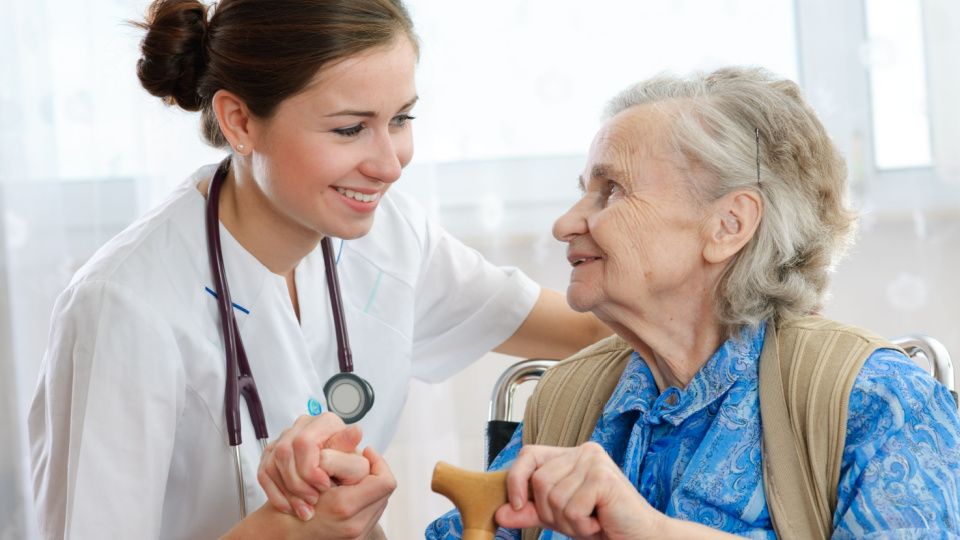Comprehensive Check-up for Women over 40
Check-up
If you’re looking for a way to greatest health screening, Check-up Treatments may be the perfect solution.
Regular medical check-up for women over 40 is crucial to prioritize their health and well-being. These check-ups typically involve comprehensive assessments of various aspects of their physical and reproductive health.
During these examinations, healthcare professionals may conduct thorough physical exams, including measuring vital signs, assessing weight and height, and evaluating breast and pelvic health.
Additionally, they may recommend screenings such as mammograms to detect breast abnormalities and Pap smears to screen for cervical cancer. Blood tests to assess cholesterol levels, blood sugar, and hormone levels may also be recommended.
These routine check-ups provide an opportunity to discuss any concerns, menopausal symptoms, hormonal changes, and age-related health issues.
Staying proactive and scheduling regular medical check-up for women over 40 are important steps toward early detection, prevention, and overall health maintenance.

Check-up for Women over 40 packages:
EXAMINATIONS
- Check-Up Examination
- ENT Examination
- Gynecology Examination
- Eye Examination
- Dermatology Examination
- Cardiology Examination
DENTAL SERVICES
- Dentist Check Up Examination
- Panoramic film
- Tartar removal (single jaw)
CARDIOLOGY EXAMINATIONS
- ECG with Effort
- ECG
- Echocardiography (Doppler+Colored+M+B Mode)
- Tension Holter (24 hours)
RADIOLOGICAL EXAMINATIONS
- Cardiac CT – Calcium Scoring
- Thorax CT (for screening purpose / low dose)
- Thyroid Ultrasonography
- Whole Abdominal Ultrasonography
- Breast Ultrasonography (two sides)
- Carotis Bilateral Color Doppler USG
- Mammography (Bilateral)
- Bone Density Measurement (FeBone Density Measurement (Femur)
- Bone Density Measurement (Lumbar AP)
- Brain (Cranium) MR (1,5 T)
- MRI Angiography (Intracranial) (3,0 T)
NEUROLOGY EXAMINATIONS
- Sleep-Polysomnography
- AUDIOLOGY EXAMINATIONS
- Audio- and Timpanometry
- Pure Tone Audiometry
RESPIRATORY TREATMENT TESTS
- Respiratory function Test
INITIATIVES
- Dermatoscopy
ENDOSCOPIC APPLICATIONS
- Esophagoscopy, gastroscopy, duodenoscopy + biopsy
- Colonoscopy + biopsy
- Colonoscopic polypectomy (for each polyp up to 2 polyps)
ANESTHESIA EXAMINATIONS
- Sedation and Local Anaesthesia
PATHOLOGICAL EXAMINATIONS
- Cytopathology, thin prep
- Stomach, biopsy
- Column, biopsy
LABORATORY EXAMINATIONS
- Alpha-Fetoprotein (AFP)
- Alkaline Phosphatase (ALP)
- Alanin Aminotransferase (ALT)
- Aspartate Aminotransferase (AST)
- Amylase
- Zinc (Zn)
- Iron
- Iron Binding Capacity
- Ferritin
- Folic Acid
- Occult Blood, Stool
- Gamma Glutamyl Transferase (GGT)
- Glucose, Fasting
- Hemoglobin A1c (HbA1c)
- Homocysteine
- Calcium (Ca)
- Chloride (Cl)
- Cholesterol, HDL
- Cholesterol, LDL (Direct)
- Cholesterol, Total
- Cholesterol, VLDL
- Creatinine, Serum
- Lactate Dehydrogenase (LDH)
- Lipase
- Lipoprotein (a) (Lp(a))
- Magnesium (Mg)
- Potassium (K)
- Protein, Total
- Sodium (Na)
- Urinalysis
- Triglycerides
- Blood Urea Nitrogen (BUN)
- Uric Acid
- Vitamin B12
- Vitamin D, 25-Hydroxy
- aPTT
- Whole Blood Count (Expanded panel)
- Prolactin (PRL)
- Thyroid Stimulating Hormone (TSH)
- Thyroxin, Free (FT4)
- Triiodothyronine, Free (FT3)
- CA 125
- CA 15-3
- CA 19-9
- Culture, Throat
- Parasites, Stool
- Culture, Urine
- SARS-CoV-2 Antigen Test (Rapid Test)
- SARS-CoV-2 Antibody, IgG, Quantitative
- Hepatitis B s Antigen (HBsAg)
- Hepatitis B s Antibody (anti-HBs)
- Hepatitis C Antibody (anti-HCV)
- HIV Antibody (1-2) + p24 Antigen
All you need to know about medical check-ups is here, contact us!
FAQ
What age should women get checked?
Women should start getting regular check-up and screenings from adolescence onwards to maintain their health. At around age 21, it is recommended for women to begin receiving Pap smears to screen for cervical cancer. Breast self-examinations can be initiated in the late teens or early twenties to promote breast health awareness, while routine mammograms generally start between the ages of 40 and 50, depending on guidelines and individual risk factors. Blood pressure measurements should be taken regularly from adolescence to monitor for hypertension. Cholesterol screenings typically begin around age 20 and are repeated every four to six years. Bone density testing is commonly recommended around age 65, and blood glucose screenings for diabetes or prediabetes usually start at age 45.
How often should a woman over 60 get a Pap smear?
For women over 60, the frequency of Pap smears may vary based on individual circumstances. In general, women who have had normal Pap smear results for years are not expected to have any abnormalities after age 65. However, if risk factors are present or if there is a history of certain diseases, further examinations may be necessary. It’s important for women to consult with their healthcare provider to determine the appropriate frequency of Pap smears based on their unique situation.
What tests are important for women?
Regular medical tests are crucial for women to ensure their overall well-being and detect potential health issues at an early stage. Some important tests recommended for women include Pap smears, which screen for cervical cancer by examining cervix cells for abnormalities. Mammograms are essential for detecting breast cancer early and are usually recommended starting at age 40 or according to specific guidelines. Regular blood pressure measurements help assess the risk of hypertension and related complications like heart disease and stroke. Cholesterol screenings every four to six years provide insights into cardiovascular health. Bone density tests, usually conducted around age 65, help diagnose osteoporosis and evaluate fracture risks. Blood glucose tests screen for diabetes or prediabetes, typically beginning at age 45 or earlier with specific risk factors.
Contact us now in case you have any questions!
Types of Treatments
Request Form
Get your free consultation
- Need guidance and reassurance?
- Talk to a real person from MedClinics!
- Let's find the perfect doctor together.